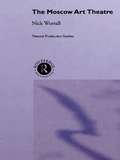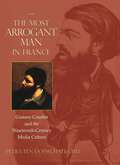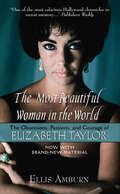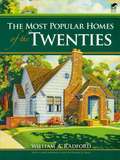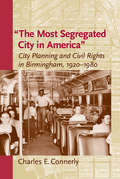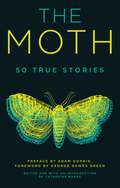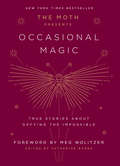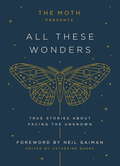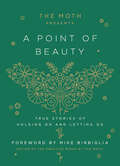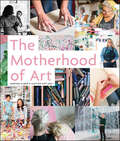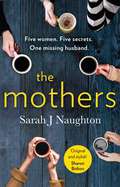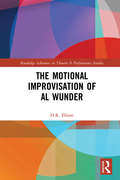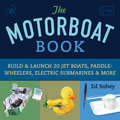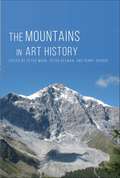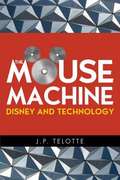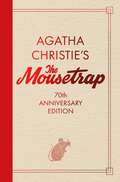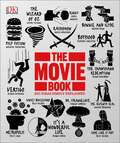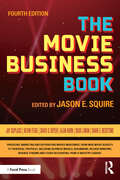- Table View
- List View
The Mosaic
by Nina BerkhoutA teenaged pacifist and a PTSD-afflicted Marine form an unexpected bond over a secret buried in a decommissioned nuclear missile silo.Twyla Jane Lee has one goal. To finish senior year so she can get out of her military hometown of Halo, Montana. But to graduate, she needs to complete forty hours of community service, and that means helping out a rude and reclusive former Marine named Gabriel Finch.A young veteran of the conflicts in the Middle East, Gabriel spends his days holed up in a decommissioned nuclear missile silo on his family farm. Twyla assumes he’s just another doomsday prepper, readying his underground shelter for Armageddon. But soon she finds out the truth, and it takes her breath away.Gradually the two misfits form a bond, and Twyla begins to unearth the secrets that have left the Marine battling ghosts. Her discoveries force her to question her views on the wars until she realizes that even if she gets out of Halo, she won’t ever be able to leave Gabriel Finch’s story behind her.Correlates to the Common Core State Standards in English Language Arts:CCSS.ELA-LITERACY.RL.6.3Describe how a particular story's or drama's plot unfolds in a series of episodes as well as how the characters respond or change as the plot moves toward a resolution.
The Mosaics of Roman Crete
by Rebecca J. SweetmanThis book examines the rich corpus of mosaics created in Crete during the Roman and Late Antique eras. It provides essential information on the style, iconography, and chronology of the material, as well as discussion of the craftspeople who created them and the technologies they used. The contextualized mosaic evidence also reveals a new understanding of Roman and Late Antique Crete. It helps shed light on the processes by which Crete became part of the Roman Empire, its subsequent Christianization, and the pivotal role the island played in the Mediterranean network of societies during these periods. This book provides an original approach to the study of mosaics and an innovative method of presenting a diachronic view of provincial Cretan society.
The Moscow Art Theatre (Theatre Production Studies)
by Nick WorrallUnprecedented in its comprehensiveness, The Moscow Art Theatre fills a large gap in our knowledge of Stanislavsky and his theatre. Worrall focuses in particular detail on four of The Moscow Art Theatre's best-known productions: * Tolstoy's Tsar Fedor Ioannovich * Gorky's The Lower Depths * Chekov's The Cherry Orchard * Turgenev's A Month in the Country
The Moscow Art Theatre Letters
by Jean BenedettiMoscow Art Theatre Letters tells the real story of the Moscow Art Theatre, from its origin at the turn of the century through its first forty years. Jean Benedetti presents the historical record first-hand in this collection of the letters of the main protagonists. Many are available in English for the first time--all will come as a revelation to Western readers.
The Mosin-Nagant Rifle (4th Revised and Expanded Edition)
by Terence W. LapinThis is a collector's guide to the "3-line rifle, Model 1891," later known as the "Mosin-system 7.62 mm Magazine Rifle, Model of 1891," and commonly referred to as the "Mosin-Nagant," in the West. Covered in-depth, are the differences, commonalities, and identifying features, for the numerous models, from the various producers. The Mosin-Nagant, rifle, and its 7.62x54R cartridge, have been important in history, from the Boxer Rebellion, and the Russo-Japanese War, to the most recent war in Iraq. This span of more than 1 hundred years has firmly established the Mosin-Nagant, and the 7.62x54R cartridge, as the most successful weapon system in modern history.
The Most Arrogant Man in France: Gustave Courbet and the Nineteenth-Century Media Culture
by Petra ten-Doesschate ChuA comprehensive reinterpretation of the pioneering and media-savvy artistThe modern artist strives to be independent of the public's taste—and yet depends on the public for a living. Petra Chu argues that the French Realist Gustave Courbet (1819-1877) understood this dilemma perhaps better than any painter before him. In The Most Arrogant Man in France, Chu tells the fascinating story of how, in the initial age of mass media and popular high art, this important artist managed to achieve an unprecedented measure of artistic and financial independence by promoting his work and himself through the popular press.The Courbet who emerges in Chu's account is a sophisticated artist and entrepreneur who understood that the modern artist must sell—and not only make—his art. Responding to this reality, Courbet found new ways to "package," exhibit, and publicize his work and himself. Chu shows that Courbet was one of the first artists to recognize and take advantage of the publicity potential of newspapers, using them to create acceptance of his work and to spread an image of himself as a radical outsider. Courbet introduced the independent show by displaying his art in popular venues outside the Salon, and he courted new audiences, including women.And for a time Courbet succeeded, achieving a rare freedom for a nineteenth-century French artist. If his strategy eventually backfired and he was forced into exile, his pioneering vision of the artist's career in the modern world nevertheless makes him an intriguing forerunner to all later media-savvy artists.
The Most Beautiful Woman in the World: The Obsessions, Passions, and Courage of Elizabeth Taylor
by Ellis AmburnEllis Amburn's magnificent biography of the Academy Award®-winning actress and legendary beauty captures the unparalleled Elizabeth in all her tragedy and splendor—her tumultuous loves, her doomed affections, her shocking excesses, her courage, and her inimitable style. Filled with stunning revelations about the men in her life—Burton, Clift, Hilton, Dean, Fisher—it is a glorious celebration of the turbulent life of a brilliant star that none in Hollywood or heaven could ever outshine.
The Most Ginormous Joke Book Ever: Laughs for All Ages and Occasions
by Cider Mill PressGet ready to laugh nonstop with hundreds of classic knock-knock jokes, silly one-liners, and hilarious puns sure to tickle your funny bone.From silly wordplay to treacherous tongue twisters, this humongous book has something for every kind of jokester. Never get tired of the same old jokes again. Jam packed with thousands of the funniest jokes, these goofy gags will have kids rolling on the floor with laughter.Including:Where did Sir Lancelot go to pay his parking tickets? Knight court.What does the Abominable Snowman get if he stays out in the sun too long? Freezer burn.Why did the pirate join a health club? He wanted to be in ship shape.What&’s a Scarecrow's favorite fruit? Strawberries!Kid-friendly content makes this a must-have for your family's bookshelf. So, what are you waiting for? Start laughing with The Most Ginormous Joke Book Ever!
The Most Popular Homes of the Twenties (Dover Architecture)
by Daniel D. Reiff William A. RadfordBased on a rare 1925 catalog, this showcase of one of the most beloved eras of American architecture features floor plans, construction details, and photos of twenty-six homes. Styles range from English cottages and Spanish bungalows to Dutch colonials, New England farmhouses, and Italianate designs.More than 250 illustrations, and 21 color plates, complement the text, which contains detailed descriptions of exteriors and interiors. Supplementary articles explain how to convert porches into living space, install plumbing, and build garages. Other home-improvement suggestions offer tips on landscaping gardens and designing interior woodwork. Daniel D. Reiff, an authority on antique house-plan books, offers an informative introduction that places these authentic views of early-twentieth-century American architecture into a wider context.
The Most Segregated City in America": City Planning and Civil Rights in Birmingham, 1920–1980 (Center Books)
by Charles E. ConnerlyOne of Planetizen's Top Ten Books of 2006"But for Birmingham," Fred Shuttleworth recalled President John F. Kennedy saying in June 1963 when he invited black leaders to meet with him, "we would not be here today." Birmingham is well known for its civil rights history, particularly for the violent white-on-black bombings that occurred there in the 1960s, resulting in the city's nickname "Bombingham." What is less well known about Birmingham's racial history, however, is the extent to which early city planning decisions influenced and prompted the city's civil rights protests. The first book-length work to analyze this connection, "The Most Segregated City in America": City Planning and Civil Rights in Birmingham, 1920-1980 uncovers the impact of Birmingham's urban planning decisions on its black communities and reveals how these decisions led directly to the civil rights movement.Spanning over sixty years, Charles E. Connerly's study begins in the 1920s, when Birmingham used urban planning as an excuse to implement racial zoning laws, pointedly sidestepping the 1917 U.S. Supreme Court Buchanan v. Warley decision that had struck down racial zoning. The result of this obstruction was the South's longest-standing racial zoning law, which lasted from 1926 to 1951, when it was redeclared unconstitutional by the U.S. Supreme Court. Despite the fact that African Americans constituted at least 38 percent of Birmingham's residents, they faced drastic limitations to their freedom to choose where to live. When in the1940s they rebelled by attempting to purchase homes in off-limit areas, their efforts were labeled as a challenge to city planning, resulting in government and court interventions that became violent. More than fifty bombings ensued between 1947 and 1966, becoming nationally publicized only in 1963, when four black girls were killed in the bombing of the Sixteenth Street Baptist Church.Connerly effectively uses Birmingham's history as an example to argue the importance of recognizing the link that exists between city planning and civil rights. His demonstration of how Birmingham's race-based planning legacy led to the confrontations that culminated in the city's struggle for civil rights provides a fresh lens on the history and future of urban planning, and its relation to race.
The Moth
by George Dawes Green Adam Gopnik Catherine Burns The MothThe first collection from celebrated storytelling phenomenon The Moth presents fifty spellbinding, soul-bearing stories selected from their extensive archive. With tales from writer Malcolm Gladwell's wedding toast gone horribly awry; legendary rapper Darryl "DMC" McDaniels' obsession with a Sarah McLachlan song; poker champion Annie Duke's two million-dollar hand; and A. E. Hotchner's death-defying stint in a bullring . . . with his friend Ernest Hemingway. Read about the panic of former Clinton Press Secretary Joe Lockhart when he misses Air Force One after a hard night of drinking in Moscow, and Dr. George Lombardi's fight to save Mother Teresa's life. Inspired by friends telling stories on a porch, The Moth was born in small-town Georgia, garnered a cult following in New York City, and then rose to national acclaim with the wildly popular podcast and Peabody Award-winning weekly public radio show The Moth Radio Hour. A beloved read for Moth enthusiasts and all who savor well-told, hilarious, and heartbreaking stories.
The Moth Presents: True Stories About Defying the Impossible (The Moth Presents #2)
by Meg Wolitzer Catherine BurnsNEW YORK TIMES BESTSELLER • From storytelling phenomenon and hit podcast The Moth—and featuring contributions from Meg Wolitzer, Adam Gopnik, Krista Tippett, Andrew Solomon, Rosanne Cash, Ophira Eisenberg, Wang Ping, and more—a new collection of unforgettable true stories about finding the strength to face the impossible, drawn from the very best ever told on its stagesCarefully selected by the creative minds at storytelling phenomenon The Moth, and adapted to the page to preserve the raw energy of stories told live, onstage and without notes, Occasional Magic features voices familiar and new. Inside, storytellers from around the world share times when, in the face of seemingly impossible situations, they found moments of beauty, wonder, and clarity that shed light on their lives and helped them find a path forward. From a fifteen-year-old saving a life in Chicago to a mother of triplets trekking to the North Pole to a ninety-year-old Russian man recalling his standoff with the KGB, these storytellers attest to the variety and richness of the human experience, and the shared threads that connect us all. With honesty and humor, they stare down their fear, embrace uncertainty, and encourage us all to be more authentic, vulnerable, and alive.
The Moth Presents: True Stories About Facing the Unknown (The Moth Presents #1)
by Neil Gaiman Catherine Burns&“Wonderful." —Michiko Kakutani, New York TimesCelebrating the 20th anniversary of storytelling phenomenon The Moth, 45 unforgettable true stories about risk, courage, and facing the unknown, drawn from the best ever told on their stagesCarefully selected by the creative minds at The Moth, and adapted to the page to preserve the raw energy of live storytelling, All These Wonders features voices both familiar and new. Alongside Meg Wolitzer, John Turturro, and Tig Notaro, readers will encounter: an astronomer gazing at the surface of Pluto for the first time, an Afghan refugee learning how much her father sacrificed to save their family, a hip-hop star coming to terms with being a &“one-hit wonder,&” a young female spy risking everything as part of Churchill&’s &“secret army&” during World War II, and more. High-school student and neuroscientist alike, the storytellers share their ventures into uncharted territory—and how their lives were changed indelibly by what they discovered there. With passion, and humor, they encourage us all to be more open, vulnerable, and alive.
The Moth Presents: True Stories of Holding On and Letting Go (The Moth Presents)
by Mike Birbiglia The MothAn inspiring and entertaining collection of unforgettable true stories about finding unexpected beauty in life&’s transitions—from Lin-Manuel Miranda, Elizabeth Gilbert, Quiara Alegría Hudes, and many more. &“The Moth taught me how to be vulnerable, how to take my time, and how to listen to someone else&’s story and share in their moments of triumph, laughter, or, yes, sometimes embarrassment with an open heart.&”—Mike Birbiglia, from the Foreword An international rescue mission for Paddington Bear. A family matriarch running numbers in Detroit. An epic Lucha Libre showdown in Mexico City. A beach vacation spent looking for the Kennedys. Storytellers from around the world share times they found real beauty in the moments when their lives changed forever—for better or for worse. Carefully selected by the creative minds at The Moth and adapted to the page to preserve the raw energy of stories told live, on stage, and without notes, A Point of Beauty features voices familiar and new. This collection offers a shared message: If we look closely enough, we can find power in strengthening frayed bonds but also in having the courage to walk away from things that no longer feed our spirit. Through these storytellers&’ passion and their hope, they teach us all about what&’s worth holding on to: our relationships with those we love the most, our understanding of ourselves, and—of course—gathering together to tell and listen to our stories.
The Motherhood of Art
by Marissa Huber Heather KirtlandLike brunch with girlfriends, provides encouragement and tips for balancing family life and your creative workFeatures 30+ artistic mothers in varied circumstances who share creative ways of balancing family lifeEncouragement from women immersed in motherhood, determined to carve out time for their creative pursuits
The Mothers: Five women. Five secrets. One missing husband.
by Sarah J NaughtonFROM THE NUMBER ONE BESTSELLING AUTHOR'Dazzlingly inventive'Sunday Times, Crime Book of the Month'A meticulously plotted exploration of friendship, foe-ship and the lies that bind, which builds to a gripping and powerful conclusion'Cara Hunter********** FIVE WOMEN.They meet at their NCT Group. The only thing they have in common is they're all pregnant. FIVE SECRETS.Three years later, they are all good friends. Aren't they? ONE MISSING HUSBAND.Now the police have come knocking. Someone knows something. THE TROUBLE WITH SECRETS IS THAT SOMEONE ALWAYS TELLS...********** 'The perfect dose of thrills and suspense, this will keep you engrossed to the very end' Heat'Original and stylish... will keep you guessing to the last page'Sharon BoltonFor fans of Big Little Lies, The Rumour and I Invited Her In, this is first class psychological suspense from the critically acclaimed Sarah J Naughton.
The Mothers: Five women. Five secrets. One missing husband.
by Sarah J NaughtonFROM THE NUMBER ONE BESTSELLING AUTHOR'Dazzlingly inventive'Sunday Times, Crime Book of the Month'A meticulously plotted exploration of friendship, foe-ship and the lies that bind, which builds to a gripping and powerful conclusion'Cara Hunter********** FIVE WOMEN.They meet at their NCT Group. The only thing they have in common is they're all pregnant. FIVE SECRETS.Three years later, they are all good friends. Aren't they? ONE MISSING HUSBAND.Now the police have come knocking. Someone knows something. THE TROUBLE WITH SECRETS IS THAT SOMEONE ALWAYS TELLS...********** 'The perfect dose of thrills and suspense, this will keep you engrossed to the very end' Heat'Original and stylish... will keep you guessing to the last page'Sharon BoltonFor fans of Big Little Lies, The Rumour and I Invited Her In, this is first class psychological suspense from the critically acclaimed Sarah J Naughton.
The Motional Improvisation of Al Wunder (Routledge Advances in Theatre & Performance Studies)
by H.R. ElliottThe Motional Improvisation of Al Wunder takes readers on a journey through the life history, creative genealogies and unique working processes of one of the master teachers of Euro-American postmodern movement-based improvisational performance who has, until now, received scant critical attention. The book offers a long overdue examination of the significant impact made by an important figure on grassroots movement-based improvisational performance in 1960s/1970s America and in Australia from the 1980s onwards. It revisits the work of groundbreaking New York choreographer Alwin Nikolais, with whom Wunder trained and for whom he later taught in the 1960s; covers collaborations with founders of ‘Action Theater’ Ruth Zaporah and ‘Motivity Aerial Dance’ Terry Sendgraff as part of the explosion of improvisation in San Francisco in the 1970s and tracks the consolidation of a unique pedagogy that would see hundreds of students learn how to map their performative creativity in Melbourne from the 1980s onwards. It conducts a fascinating investigation into the wellsprings of Wunder’s approach to improvised performance as an end in itself, covering teaching innovations such as his use of the Hum Drum, positive feedback, personal power sources and articulators. It includes valuable contributions from a number of ex-students and established Australian artists in dance, music and visual art who share the profound impact Wunder has made on their creative practices. This book will be a valuable resource to movement/dance improvisation students and teachers at undergraduate and postgraduate level and independent artists drawn to movement improvisation as performance.
The Motorboat Book: Build & Launch 20 Jet Boats, Paddle-Wheelers, Electric Submarines & More (Science in Motion)
by Ed SobeyThere's more than one way to power a toy boat. Electric motors, balloons, gears, water jets, belt drives, chemical reactions, steam, and even gravity can be used to propel a small ship across a pool. Also, the boats' propellers and paddles can be side-mounted or at the stern, or even sit above the waterline, like a fan-powered swamp boat. The Motorboat Book will show children how to build more than 20 different models through step-by-step instructions with clear photos. And if they'd rather travel under the water than over it, the book has 6 different submarine projects. In addition to the boatbuilding activities, author Ed Sobey includes instructions on how to build an "ocean" to test the boats, as well as accessories such as four different water pumps, waterproof battery and motor cases, and a working foghorn. Most of the boats are built from recycled and easy-to-find materials, but an appendix lists local and online sources for wire, plastic propellers, small motors, and more. Educators will appreciate the Meeting Science Standards summary at the end of the book.
The Mountains in Art History
by Peter Mark ; Peter Helman ; Penny SnyderThe Mountains in Art History is the first English-language work to focus on mountains as subject matter and source of aesthetic and spiritual inspiration for painters. This collection of original essays is written entirely by Wesleyan University students of art history. The essays examine how artistic representation of mountains has varied through the lens of specific depictions in English and American literature, and consider how images of mountains functioned in conjunction with religion, the sublime, and Romanticism. These essays by student authors adeptly ruminate on works by individuals such as William Wordsworth, John Frederick Kensett, Alexander van Humboldt, Emil Nolde, and Arnold Fanck. Includes an introduction by professor Peter Mark and a helpful appendix of the course syllabus and narrative description.
The Mouse Machine: Disney and Technology
by J P. TelotteThroughout Disney's phenomenally successful run in the entertainment industry, the company has negotiated the use of cutting-edge film and media technologies that, J. P. Telotte argues, have proven fundamental to the company's identity. Disney's technological developments include the use of stereophonic surround sound for Fantasia, experimentation with wide-screen technology, inaugural adoption of three-strip Technicolor film, and early efforts at fostering depth in the animated image. Telotte also chronicles Disney's partnership with television, development of the theme park, and depiction of technology in science fiction narratives. An in-depth discussion of Disney's shift into digital filmmaking with its Pixar partnership and an emphasis on digital special effects in live-action films, such as the Pirates of the Caribbean series, also highlight the studio's historical investment in technology. By exploring the technological context for Disney creations throughout its history, The Mouse Machine illuminates Disney's extraordinary growth into one of the largest and most influential media and entertainment companies in the world. Hardback is unjacketed.
The Mousetrap: 70th Anniversary Edition
by Agatha Christie'Even more thrilling than the plot is the atmosphere of shuddering suspense . . . No one brews it better than Agatha Christie' Daily ExpressFor 70 years, Agatha Christie's The Mousetrap has kept millions of people, from every corner of the globe, on the edge of their seats, and it continues to be a sell-out hit of London theatre. This brand new edition of the world's longest-running play will contain a new introduction by Sophie Hannah, bestselling author of the authorised Agatha Christie Poirot continuation novels, as well as the official play script and a host of exclusive material from the show's archives. As news spreads of a murder in London, a group of seven strangers find themselves in a remote countryside guesthouse. When a police sergeant arrives, the guests discover - to their horror - that a killer is in their midst. One by one, the suspicious characters reveal their sordid pasts. Which one is the murderer? Who will be their next victim? And can you solve this world-famous mystery for yourself?This beautiful 70th anniversary edition will contain an introduction by Sophie Hannah, the official playscript, an exclusive interview with producer Adam Spiegel, a treasure trove of letters, speeches, photographs, and other fascinating insights into the making of this iconic play.
The Mousetrap: 70th Anniversary Edition
by Agatha Christie'Even more thrilling than the plot is the atmosphere of shuddering suspense . . . No one brews it better than Agatha Christie' Daily ExpressFor 70 years, Agatha Christie's The Mousetrap has kept millions of people, from every corner of the globe, on the edge of their seats, and it continues to be a sell-out hit of London theatre. This brand new edition of the world's longest-running play will contain a new introduction by Sophie Hannah, bestselling author of the authorised Agatha Christie Poirot continuation novels, as well as the official play script and a host of exclusive material from the show's archives. As news spreads of a murder in London, a group of seven strangers find themselves in a remote countryside guesthouse. When a police sergeant arrives, the guests discover - to their horror - that a killer is in their midst. One by one, the suspicious characters reveal their sordid pasts. Which one is the murderer? Who will be their next victim? And can you solve this world-famous mystery for yourself?This beautiful 70th anniversary edition will contain an introduction by Sophie Hannah, the official playscript, an exclusive interview with producer Adam Spiegel, a treasure trove of letters, speeches, photographs, and other fascinating insights into the making of this iconic play.
The Movie Book: Big Ideas Simply Explained (DK Big Ideas)
by DKLearn about the visual and performing arts in The Movie Book.Part of the fascinating Big Ideas series, this book tackles tricky topics and themes in a simple and easy to follow format. Learn about Movies in this overview guide to the subject, great for beginners looking to learn and experts wishing to refresh their knowledge alike! The Movie Book brings a fresh and vibrant take on the topic through eye-catching graphics and diagrams to immerse yourself in. This captivating book will broaden your understanding of Movies, with:- More than 100 of the best movies ever made worldwide- Packed with facts, charts, timelines and graphs to help explain core concepts- A visual approach to big subjects with striking illustrations and graphics throughout- Easy to follow text makes topics accessible for people at any level of understandingThe Movie Book is the perfect introduction to the rich history of cinema like never before - from the golden age of black-and-white films to international art-house and 21st-century sci-fi, aimed at adults with an interest in the subject and students wanting to gain more of an overview. Here you&’ll discover more than 100 of the best movies ever made, uncovering the key themes and big ideas behind the world's most celebrated cinematic gems.Your Movie Questions, Simply ExplainedThis book brings cinema to life with iconic quotes and film stills, posters, biographies of directors, actors, and actresses, along with narrative timelines and infographics exploring key themes. If you thought it was difficult to learn about the best cinematic masterpieces, The Movie Book presents key information in an easy to follow layout. Learn everything about your favorite movies, as well as celebrated classics and the films to watch before you die, through iconic quotes and stills, posters, biographies, memorabilia and narrative timelines, through fantastic mind maps and step-by-step summaries. The Big Ideas SeriesWith millions of copies sold worldwide, The Movie Book is part of the award-winning Big Ideas series from DK. The series uses striking graphics along with engaging writing, making big topics easy to understand.
The Movie Business Book
by Jason E. SquireTapping experts in an industry experiencing major disruptions, The Movie Business Book is the authoritative, comprehensive sourcebook, covering online micro-budget movies to theatrical tentpoles. This book pulls back the veil of secrecy on producing, marketing, and distributing films, including business models, dealmaking, release windows, revenue streams, studio accounting, DIY online self-distribution and more. First-hand insider accounts serve as primary references involving negotiations, management decisions, workflow, intuition and instinct. The Movie Business Book is an essential guide for those launching or advancing careers in the global media marketplace.


